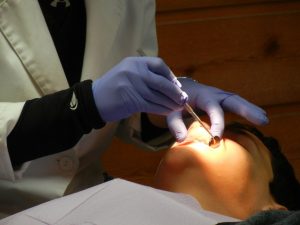 Many of the people in the UK have an array of choices when it comes to how they take care of their mouths. Aside from the standard oral hygiene practice, treatment is also an essential component in dental care. Different types of treatment are available in the UK and different dentists, and deciding which works best is a crucial issue in the same degree as to how to pay for it.
Many of the people in the UK have an array of choices when it comes to how they take care of their mouths. Aside from the standard oral hygiene practice, treatment is also an essential component in dental care. Different types of treatment are available in the UK and different dentists, and deciding which works best is a crucial issue in the same degree as to how to pay for it.
Below are some of the payment options for a dentist in Fleet or avenues that patients in the UK can choose from for their dental treatments.
1. NHS Patient Charges
The NHS dental treatment is a government-supported program, which means the government sets the costs. The prices will differ based on where you are in the United Kingdom. If you are in Wales, you will have three bands with fees of between £14 and £195, and in England there also are the three bands with prices ranging between £21.60 to £256.50, depending on the type of treatment. A single course of the NHS treatment in Northern Ireland and Scotland will cost a maximum of £390.
Pros: The government sets the costs so that you do are not charged exorbitantly, and you will know the much to pay for your treatment. In some cases, some individuals can have NHS dental treatment at no charge. They include people in unique benefits like income-based jobseeker’s allowance, individuals receiving income support, pregnant women, mothers with a child under the age of one year, and children under the age of 18 with the exemption of those who are 19 and are continuing with full-time education.
Cons: You might have to wait for your dental appointment if you are in an area with a high demand for such treatments under this program. If you fail to attend your appointment, the dentist can choose to discontinue your treatment in the future. Moreover, you might be restricted from getting specific procedures like a root canal, silver fillings, and crowns or extractions; all meant to ensure you are dentally okay. You, thus, are expected to pay for any other treatment not covered under the NHS guidelines.
2. Cash Plans
It is a monthly payment plan option that will reimburse all or a portion of what you pay for your dental treatment either via the NHS or privately. However, the payment is subject to a set amount.
Pros: You receive cashback for the specified amount you spend on any treatment. The cashback can be for a part of the costs of treatment or the full amount you paid. For a year, you can claim a lot more than you have paid for the plan. The beauty of the cash plans is they help spread the costs over an extended time, making them an excellent option when you are faced with unplanned or expensive dental treatment.
Cons: If you do not undergo any treatment, then the cash plans can become an expensive choice.
3. Private Dental Insurance
With this option, you will adhere to a monthly plan in which you pay for the treatment and then claim back the money from the insurer.
Pros: It covers you for any dental accidents and emergencies, and it is an ideal option when the treatment is costly. The insurance policy can even cover you for dental treatment you receive abroad, making it a wise choice if you travel frequently. You can opt to pay monthly or annually, and you will not worry about large dental treatment bills that come up unexpectedly.
Cons: Dental insurance can turn out to be an expensive thing, depending on your history and health. Some insurer offer polices that cost costs of private dental treatment at around half the fees, which is a lot for you to pay. Moreover, the insurance covers are subject to a determined qualifying period, which can be a month or up to six months, depending on your policy. That means you will not be able to claim the costs incurred for treatment during that qualifying period.
4. Private Dentistry
In this option, your treatment is not under the NHS program, and thus, it is not subject to any government price caps.
Pros: It is one of the options that has many positives. You will not face long waiting times for an appointment. Furthermore, it will be easier for you to get an appointment that fits your schedule. Additionally, you only get to pay for the treatment you receive, and you can pick any level of treatment you want. It can even be a treatment that is not available with the NHS. You also get to ‘shop around’ and compare prices from different dental practices for the same treatment and pick the one that offers the best rates and terms.
Cons: The primary drawback of this option is the cost factor. Some of the treatment that is not available under the NHS program, such as bridges, white fillings, some implants, and crowns are not cheap, and you have to settle with the prices set by the private dental practices. The costs differ from one dental practice to the next, hence the need to do some extensive shopping around to find the most affordable offers.